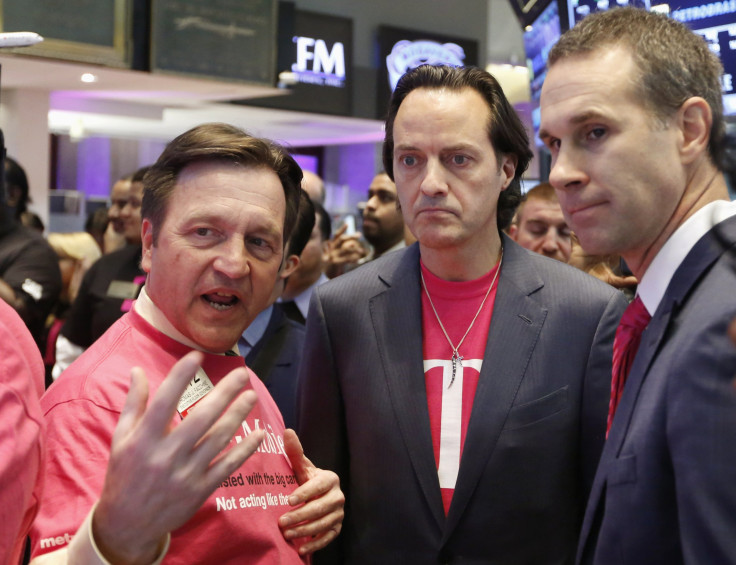T-Mobile To Pay At Least $90M To Settle ‘Cramming’ Charges

T-Mobile has agreed to pay at least $90 million in penalties and refunds to settle unauthorized billing charges, New York Attorney General Eric Schneiderman announced Friday. The Federal Trade Commission and the Federal Communications Commission originally sued the mobile carrier in July, charging that it had subjected subscribers to a practice called "mobile cramming."
Cramming involves carriers allowing third parties to deliver content, such as horoscopes and celebrity gossip, to mobile devices -- often without fully disclosing the charges. In T-Mobile’s case, customers were charged as much as $9.99 per month for receiving these extras through a “premium text message service.”
The FTC said it found that T-Mobile profited from taking up to 40 percent of these unwanted charges, totaling in the tens of millions of dollars. T-Mobile initially spoke out against the FTC’s claims, with CEO John Legere calling the accusations “misdirected.” Legere insisted that T-Mobile made efforts to fully refund customers hit by cramming, but the FTC said the carrier has not been as compliant as it claims.
The commission said in July that its primary charge against T-Mobile was that the carrier did not refund customers in full. Many customers reportedly received only partial refunds for two months of charges, while others were told by T-Mobile to seek refunds directly from the third-party content providers but were not given accurate contact information.
"Mobile cramming is an issue that has affected millions of American consumers," FTC Chairwoman Edith Ramirez said in a statement Friday. "I'm pleased that this settlement will put money back in the hands of affected T-Mobile customers."
T-Mobile is required to pay fines of $18 million to the FTC and $4.5 million to the FCC, in addition to the $90 million that will be utilized to refund affected customers. And the carrier may have to pay more if refund demands exceed the initial settlement. T-Mobile has not commented on the matter.
The feds have slapped several other mobile networks with cramming charges. In October, AT&T settled a cramming suit of its own with the FTC, agreeing to pay $105 million in penalties and refunds. On Wednesday, the Consumer Financial Protection Bureau and FCC filed a federal lawsuit against mobile carrier Sprint, charging the network with mobile cramming.
"We recognize this is an important issue for our customers," Sprint said in a statement. "And we consistently have encouraged any customers who think they may have incurred an unauthorized third-party charge on their phone bill to contact Sprint to resolve the issue."
© Copyright IBTimes 2024. All rights reserved.












